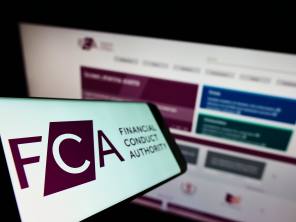

Adviser firms have told FTAdviser that the government should look at maximising the potential for corporate tax relief available, as opposed to simply taking tax relief from the defined contribution system, in response to the green paper on pensions tax relief.
In the summer Budget, it was announced that further radical reforms of the pensions system could be introduced, with the implication that pensions contributions would no longer be tax free, but withdrawals would be.
Speaking to FTAdviser, Broadstone’s technical director David Brooks said the changes the government wishes to make to pension savings would only impact savings made to DC schemes, as treating defined benefit members under the same rules would not work.
According to the government’s briefing paper on restricting pensions tax relief, HM Revenue and Customs estimated the cost of pensions tax relief for 2013/2014 at £34.3bn.
This is made up of £6.2bn in contributions from employees, £20.2bn from employer contributions, £600,000 from self employed contributions and £7.3bn as investment costs of pension funds.
Therefore, the government will only save £6.2bn of tax relief, as this is the only figure that relates to DC schemes, with the remaining £28bn in respect of contributions to DB schemes.
Mr Brooks said: “As we know, the vast majority of DB schemes are closed, so again the majority of the £28bn are employer deficit contributions to their DB schemes. The government can’t get their hands on that unless they change the way deficits are valued.
“By changing the tax relief rules on personal contributions (a further smaller proportion of the £7bn to DC schemes) the government will not recoup as much tax relief as they’d perhaps like, as this will only allow the government to reduce the tax relief of DC pension savings; about £7bn.
He pointed out that the bigger target would be to reduce the level of tax relief given to companies, as their contributions are tax free to DB schemes.
“So the government might want to review the level of money being ploughed into DB schemes by employers to reduce the tax relief given there, employers pay more tax or employ more people (who pay more tax) or invest in their business and make more money for UK Plc.
“The DB deficits are a massive drain on companies and the government.”
He added that the state may review the statutory funding rules to reflect what he described as a “false gilt yield” market. “If this could be accounted for in some way, it could reduce the value of the deficit and reduce the call on the employer to pay into the pension scheme.”
Ian Neale, technical pensions legislation specialist at Aries, said that at a time when pensions tax relief is under unprecedented pressure from a cost-cutting government, it looks “illogical” to deliberately reduce government tax income from any sector.
“There is objective evidence that HMRC has not done nearly as much as it could have to bring in corporation tax from large corporates; evidence of this is scandalous publicity.
“Multi-billion global corporations were paying nothing in corporation tax, the government is going in the wrong direction - they should not be lowering corporation tax.”
He added that to be reducing tax in this particular direction makes no sense. “The government wants to make Britain a more attractive economy, but I would personally question how much difference this is going to make; they could be engaging in a race to the bottom.”
ruth.gillbe@ft.com



